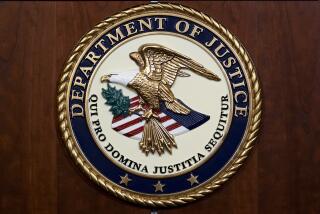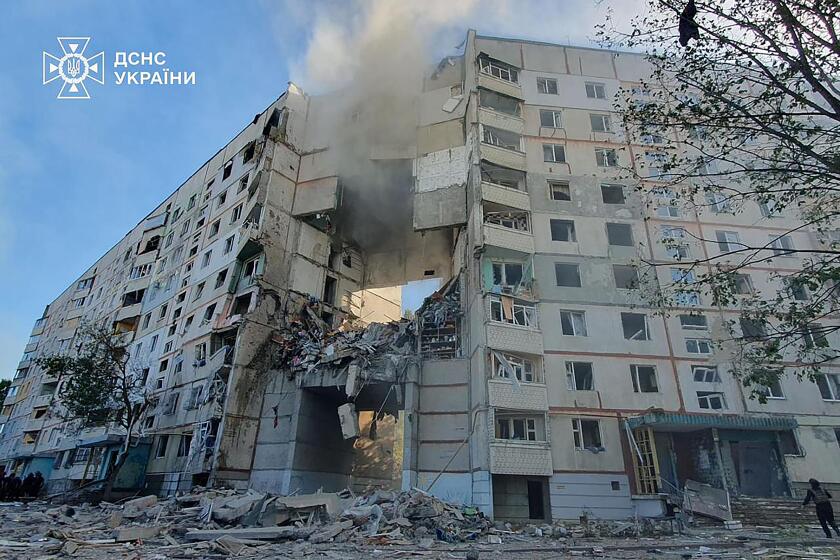Iran offers conflicting messages
With tense international talks drawing near, Iran on Tuesday boldly reasserted its right to build nuclear installations, while fissures appeared in the coalition of nations seeking to steer the country’s leadership away from its nuclear ambitions.
Iran held fast to its hard-line position in the wake of revelations of a new underground nuclear site, but also offered a conciliatory gesture by saying it would set a timetable “soon” to admit international inspectors to the facility, near the holy city of Qom.
The split image of confrontation and vague cooperation injected an added sense of drama to Thursday’s nuclear talks in Geneva, leaving diplomats uncertain whether Iran will negotiate seriously with the United States, Russia, China, Britain, France and Germany.
U.S. and allied officials maintain that Tehran’s ultimate aim is to build nuclear weapons, but Iran says its nuclear program is strictly for civilian energy purposes. Its chief energy director said Tuesday that developing atomic weapons would be “against our religion.” But Ali Akbar Salehi, director of the Atomic Energy Organization of Iran, also told reporters that “the new site is part of our rights and there is no need to discuss it.”
Revelations last week about the new facility appeared to solidify an international coalition, drawing Russian officials closer to President Obama’s view that harsher economic sanctions may be required if Iran does not agree to closer inspections and full disclosure of its plans and aims.
But the Kremlin eased its stance slightly on Tuesday, with Russian Deputy Foreign Minister Sergei Ryabkov calling for a “diplomatic, political solution” and an unnamed Foreign Ministry official telling Itar-Tass, the state-run news agency, that continued criticism of Tehran could undermine negotiations.
China has also remained reluctant to support new sanctions, strongly favoring talks. Both nations, which have veto power in the U.N. Security Council, have strong commercial ties to Iran.
The Obama administration has maintained pressure on Iran, as have Britain and France. Officials in Washington have even pointed to the possibility of unilateral sanctions, if necessary, such as the financial measures used against North Korea in 2005 leading to a freeze of that country’s accounts at a Macao bank.
The administration has not detailed sanctions being considered, but in the meantime it is working to restrict Iran’s ability to arrange insurance from international sources on its shipping as a means of reducing the trade on which it depends.
White House Press Secretary Robert Gibbs emphasized what the Obama administration sees as Iran’s responsibility to prove its nuclear program is strictly civilian, not military, in nature.
“I think the onus is on the Iranians to show the world that the program is a peaceful program to create energy, rather than a secret program for nuclear weapons,” Gibbs said.
U.S. negotiators have met with disappointment in previous overtures to Iran. In 2007, Bush administration diplomats met with Iranian counterparts to talk about joint interests in stabilizing Iraq, but the discussions broke down amid squabbling.
Hoping for a different story line this week, the Obama administration has insisted that Iran commit to substantial talks and “come clean” about its nuclear program, or face the likelihood of new sanctions.
Among other demands, U.S. officials and their allies want speedy access to the Qom site. They also want a response from the Iranians on a “freeze-for-freeze” proposal, under which Iran would halt some uranium enrichment activities in return for the suspension of some sanctions. The proposal has been on the table, without Iranian response, for several years.
Western leaders believe that Iran’s credibility has been hit hard by Obama’s disclosure last week of the Qom plant and the internal mass protests over the country’s June presidential election, marred by allegations of fraud.
The combination has made it harder for Iran’s traditional defenders, Russia and China, to support it.
Diplomats believe that the Iranians, as they have before, would prefer to pledge openness, but delay the process through more talks without making concessions.
“They’re masters at doing very little, but just enough to relieve pressure on them,” one European diplomat said, speaking on condition of anonymity because of diplomatic sensitivity.
The Iranians plan to offer several proposals intended to show a cooperative spirit, including the vague promise of access to the Qom site.
“It is against our tenets, it is against our religion, to produce, use, hold or have nuclear weapons or arsenal,” said Salehi, Iran’s atomic energy chief. “Since 1974 we have been saying this.”
The Iranians have hinted at other gestures. President Mahmoud Ahmadinejad said in an interview with the Washington Post during his visit to the United Nations last week that Iran would allow access to its nuclear scientists. And Iran’s state-owned Press TV reported Tuesday that Iran “has submitted a package of proposals” to defuse tensions.
Backing up the conciliatory posture, the Iranians allowed Swiss diplomats Tuesday to visit three Americans -- a journalist and two companions -- who have been detained in Iran since late July, when they crossed over from Iraq while hiking. The Iranian move was hailed by U.S. officials, who nonetheless called for Iran to “seriously engage” during talks Thursday.
At the same time, Iran has made confrontational gestures that have alarmed U.S. officials and their allies, most prominently, the test-firing of short- and medium-range missiles over two days this week.
“This is not a great opening,” said the European diplomat.
The revelation about the Qom plant may have strengthened the U.S. hand in some ways, said Suzanne Maloney, an Iran expert at the Brookings Institution’s Saban Center. But it also could complicate the diplomacy in Geneva.
By demonstrating that Iran has been less than forthcoming about its nuclear efforts, the disclosure may make it difficult for the Obama administration to accept a lesser Iranian offer that might, in time, lead to productive talks, said Maloney, a former State Department official.
Heightened expectations “can be a positive, but it can also put undue pressure” on the administration, she said.
--
cparsons@latimes.com
Times staff writers Megan K. Stack in Moscow and Jeffrey Fleishman in Cairo contributed to this report.
More to Read
Sign up for Essential California
The most important California stories and recommendations in your inbox every morning.
You may occasionally receive promotional content from the Los Angeles Times.












